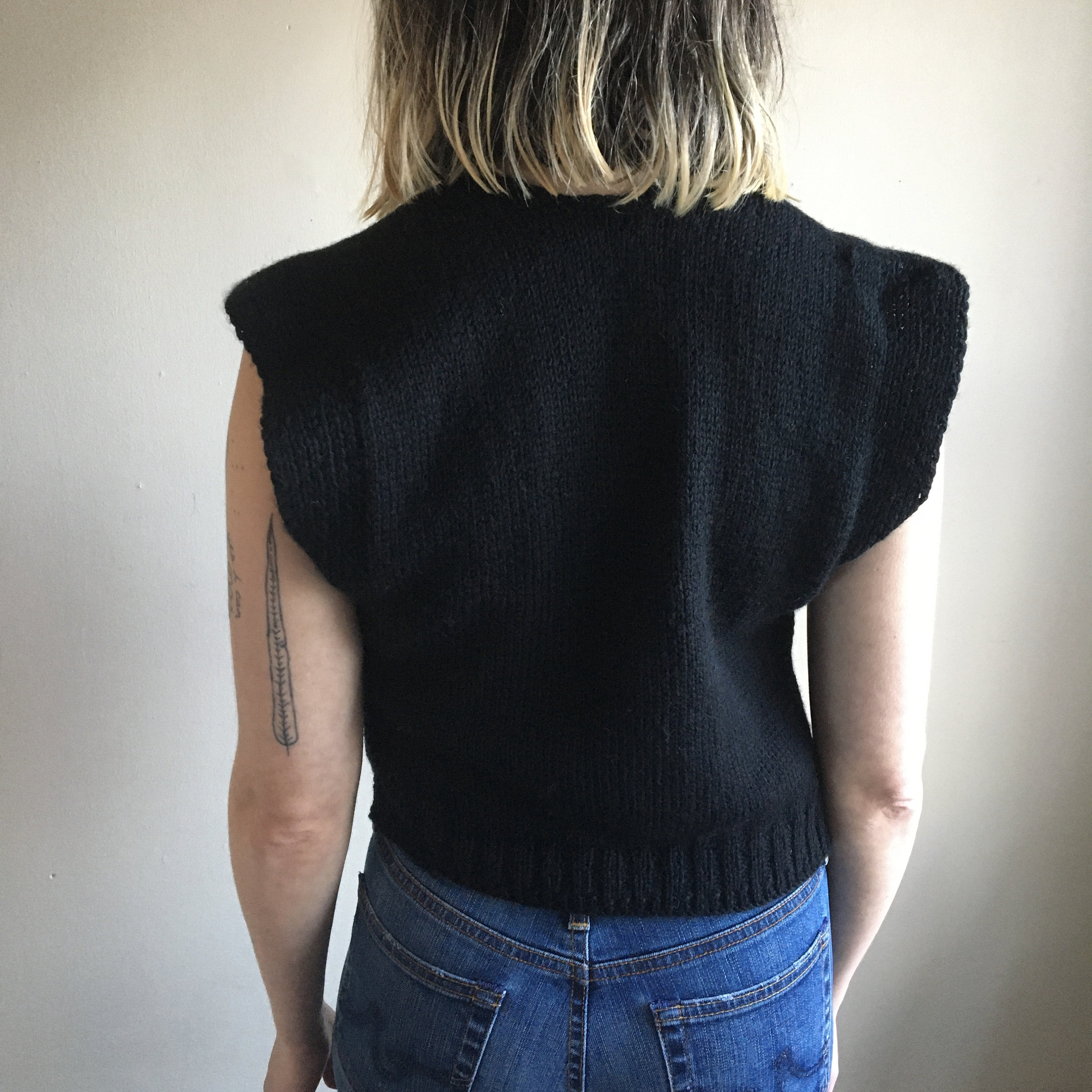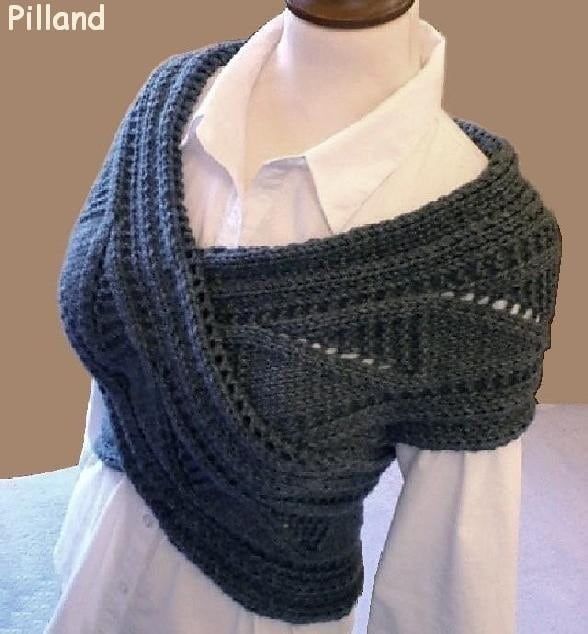simple knitted sweater vest pattern
simple knitted sweater vest pattern
simple knitted sweater vest pattern Sewing is a craft that the states a needle and weave to tie something or connect something . The history of sewing dates back 1000s of years BC . Sewing has its own basic sewing technique, different from weaving and fancywork . In general, all still use the basic proficiencies of traditional stitchery, until the stitchery machine came out in 1790, invented by Thomas Saint.
Download
Basic Sewing Techniques
Nowadays , tailors in general use stitching machines more oftentimes . The machine is divided up into two, namely traditional and electric automobile . Even so, the staple stitchery techniques are still beingness studied because purchasing a machine requires thomas more capital . Another reasonableness is that victimisation staple sewing proficiencies bequeath pass on you much best answers and multifariousness than machines . Here's an explanation for the staple sewing proficiency:
1 . Skewers
The basic technique of sewing a baste stitch is a technique in which the pattern affects from child to left . This stitch proficiency is useful for fashioning sews neater and even perfect . The baste stitch practice has 3 functions, that is to say sewing the sides of the textile, conclusion the ends of a form, and making the material have a wrinkle effect.
As for the basting proficiency, there are 3 types, videlicet:
Ordinary Skewers : This proficiency is done with unequal distances, different.
Skewer a certain distance : This proficiency usas a uniform distance . This type of baste stitch is useful for temporary worker stitches.
Skewer Barrier : This proficiency united states a single space . between each stitch . This stitch is made with doubled togs so that when the stitch is finished, there is a shadow of the last stitch.
2 . Stabbing Traces / Flip
The following basic stitching technique is the imprint lancinating technique or another name for the back stab stitch . This chase stitch has the same vallecula as a stitching machine . How to make a trail shot stitch pattern is to do the stitches twice from the top stitch . The function of the trail stab is to get decorative line ornamentations that are heterosexual person, circular, or other forms according to the desired purpose . Examples of the results are the motives on the sarong in the shape of boxes, fashioning stressed occupations, writing, and others . Another function is to connect cloths with other fabrics and zipper connexions with textiles.
3 . Skewer Flannel
The staple proficiency of stitching flannel stitches is in the main secondhand as a method acting of sewing the edges of the garment being overlaid . Basically, flannel stitches are used on textiles that have an expensive marketing evaluate . The flannel stitch technique has 3 united states, videlicet as decoration, basic stitches, and shadow fancywork with rigorous spatial arrangement that can follow the motive.
How to apply a flannel stitch is to do a tacking stitch on a material that has been sewn 3-4cm with a 0.75cm step rearward . Insert the needle to the right and back once more 0.5 cm . Thread back over the first stitch and proceed until you're done.
4 . Skewer Feston
Feston has a role to finishing the lint on the seam . An example is the grummet on the arms in baby clothes . In addition, the Feston stitch design too serves as a decoration . Especially if the combination of basic and cosmetic yarn colors has a good concord . The form of ornament that can be made with a festival pattern is a blossom-ilk shape.
5 . Prick the Wrap
The bandage sew together pattern is utilitarian for stitching damaged lint on crimper clinches . Another part is as a finish technique on the edge of the seam . How to sew with the staple proficiency of balut stitch is left to right and vice versa at a slight angle.
6 . Skewer / Stem
Especially utilitarian as a ornamentation on a material . The results that can be obtained from spliffs are in accord with the resultant roles, that is to say the form of the stem turn . It is possible to make other institutions with stick sticks, but in general they are made to get sticks.
How to use the stick sew together practice is to sew back 1/2 cm and bind 5-6 togs to the textile . After that the needle is pulled out and develops a stalk sew together . This practice is repeated until the desired resultant role is obtained . If you want to get a larger size, the stitch length is made tighter and the textile is larger.
7 . Chain Stitch
As the name implies, the staple technique of stitching a chain stitch has a pattern that forms a chain . This formula is utilitarian for fashioning ornamentations on materials in the shape of chains, for exercise, tree branches and tree ramifies.
How to realise a chain sew is to take a step forwards in stitchery . First, stick the needle from the bottom of the inning to the top of the textile . After that the needle will be inserted back into the hole where the needle formed a circle due to the old puncture . Pull the needle and ingeminate the pattern until the in demand traffic pattern is formed.8 . Cross Skewer
The cross stitch pattern is used as a ornamentation on the stuff . How to work a cross stitch approach pattern is to sew from the top right to the bottom of the inning leftfield, after that the direction is made to the bottom right . The instant stab will start at the bottomland right and and so work towards the top left . Make sure that the stitches are aligned at the top and bottomland so that they form a peachy cross sew . Repeat until you get the in demand result.
9 . Skewer Piquar
The piquar stitch is a staple stitching proficiency that is useful for attaching furred materials . Generally secondhand on fur coats, jackets, or suit of clothes . Another office of piquare stitch is as a laurel wreath on other apparel.
10 . Skewer Som
The som run up design is used to sew and lock the faithfuls in the fabric . Fabrics that have been locked with a som stitch pattern cannot be open once again easily . How to use the som technique is to stay the meander into the folded fabric . Pull the wind and and so knife thrust it back next to the stitch with a tight distance . Repeat until you let finished stitchery the turn ups.
11 . Flatback
The staple technique of stitching a straight stitch is from leftfield to right . This practice is made by going up and downhearted in a heterosexual line and in layers covering the entire surface of the decoration . This technique is generally secondhand to make decorations in the shape of leafages or bloom crowns, and doll noses.
12 . Open Chain Stitch
Is one signifier of cosmetic stitch that alters . This run up is basically a chain run up with its own variations . This practice is in general made into decoration on chicks because it forms an opened mouth.
13 . Skewers
Similar to the bowl stitch type . The difference is in the serve . The bars function to beautify the come on, patch the roll up stitch technique is useful for connecting two cloths together . Examples of gratings are the mold of the eyes, nose, rima oris, and blossom crowns.
14 . Skewer Roll
The basic proficiency of stitching a roster stitch, as the name suggests, this rule forms a encircle when applied . This technique is used to connect the fabric so that the terminals of the fabric do not pile up.
15 . Bullion Stab
The Bullion stitch proficiency is not a basic stitching technique . Bullion is an advanced technique rarely used by sews . The bullion stitch pattern creates bantam string of beads to organise midget blooms and thomas more.
16 . Skewer Roumani / Rumani
The roumani proficiency is the saami as the bullion stitch . This proficiency has an advanced plane and is not commonly used . The Roumani stitch pattern is useful for forming ornamentations with inside information, for example, hanker foliages and primes.
17 . Satin Skewer
The satin stitch pattern is secondhand to shuffling leaf-shaped decorations in superior general . In addition to leaves, satin stitch technique can too be secondhand to signifier assorted ornaments as in demand.
18 . Flat Skewer
The flat stitch design is used as a embellishment in the stitch . In general, to fill up in the empty w. c. fields in the framework that has been created.
19 . Straight Skewer
The staple technique of stitching a straight stitch has the same practice as the name implies, which is heterosexual . This proficiency is secondhand to form blooms and gunter grass with straight person sews.
20 . Skewer Flowers
The basic proficiency of sewing flower stitch has a very unique pattern . Patterns of blossom stitches alter wide with the resultant roles forming the framework of a blossom . How to do a different bloom stitch according to the desired flower.
21 . Skewer Veston
The daar proficiency of stitching the vetson stitch is used on tablecloths, covers, cloth edges, article of clothing edges, and so on . Including easy and can be done as didactics to children . The sewing instruction can be done from left field to redress or vice versa . Start sewing by knifelike from the interior of the textile at a position 1 cm from the end of the fabric, after that perpetrate it out . Put it back in the cloth near the number one hole out and pull it lightly . After that there will be a circulate of thread, put the weave in the circulate and and then pull it . Repeat until ruined stitchery.
Download




Posting Komentar untuk "simple knitted sweater vest pattern"